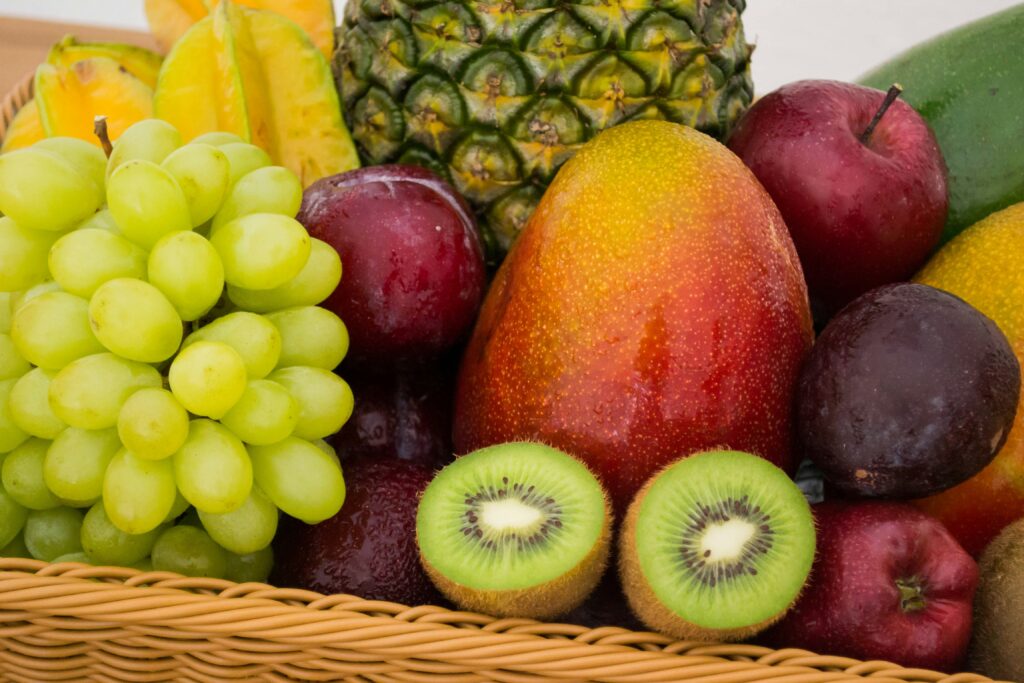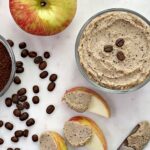 Eat Well Collective is launching a new monthly Nutrition Advice Column. Feel free to submit your questions to [email protected].
Eat Well Collective is launching a new monthly Nutrition Advice Column. Feel free to submit your questions to [email protected].

Question: Is fruit okay to eat? I heard it has a lot of sugar.
Short answer: YES! Yes, yes, yes. Please eat fruit.
Side note: This question frustrates me sometimes. Not because of the person asking, but because, more often than not, the advice originated from a doctor. Some doctors have a fair amount of training in nutrition. Most do not. If your doctor told you to stop eating fruit or to limit fruit, please ask for a referral to a dietitian so that you can receive personalized nutrition advice.
And I say – find a DIETITIAN. Do not google for answers. There is so much misinformation on the internet. Dietitians are trained nutrition professionals. Is it a little “bananas” that we need a trained professional to tell us how to eat? Yea, probably. But like most fields, there is so much knowledge available now that oftentimes it really does take a trained professional.
I digress.
Long answer: Fruit sometimes gets a bad rap because it contains carbohydrate.
Carbohydrates impact blood sugar. Some people, particularly those with diabetes, need to be mindful of carbohydrate intake. But carbohydrates are NOT bad.
We need carbohydrates – they are fuel for our brains and bodies.
 Our bodies run on carbohydrates. They are essential for providing energy and for overall well-being. But there are different types of carbohydrates – refined and complex. Refined carbohydrates have had their fiber removed, such as white bread or boxed brownies. Complex carbohydrates have fiber.
Our bodies run on carbohydrates. They are essential for providing energy and for overall well-being. But there are different types of carbohydrates – refined and complex. Refined carbohydrates have had their fiber removed, such as white bread or boxed brownies. Complex carbohydrates have fiber.
When my clients tell me that they are worried about the sugar in fruit, I hear an underlying assumption that fruit is the same as a refined carbohydrate. But that’s not true.
All fruit has fiber, unless you juice them. This makes fruit a complex carbohydrate. Fiber slows down the absorption of carbohydrate from the fruit and decreases the impact on blood sugar.
Quick side note: Refined carbohydrates also have a place at the table. Foods such as candy or juice can provide a quick source of energy and can be enjoyed as part of a varied diet. You can also decrease the impact on blood sugar by pairing refined carbs with foods that contain protein or fat.
Let’s talk briefly about bananas.
 Bananas often get singled out as being “too high in sugar”, but let’s take a closer look.
Bananas often get singled out as being “too high in sugar”, but let’s take a closer look.
A medium-sized banana contains about 27 grams of carbohydrate. But when a food has fiber, you can literally deduct the fiber from the carbohydrate amount. So, for a banana, when you account for fiber, it contains closer to 24 grams of carb. While that is more than double what you will get from an apple, it is important to remember: a banana is a ‘high carb’ fruit, but is NOT a high carb FOOD.
Let me say that again – bananas are a high carbohydrate FRUIT, but NOT a high carbohydrate FOOD.
The average adult needs anywhere from 40-75 grams of carbohydrate PER MEAL. Roughly 50% of our food each day should come from foods containing carbohydrates. That leaves plenty of room for the carbohydrates in a banana.
In addition, if we cut out fruit, we cut out many nutrients that we need.
Avoiding fruit may put you at risk for developing a nutrient deficiency.
If we cut out fruit, we risk missing out on important nutrients like vitamin C, potassium, fiber, and folate to name just a few. These nutrients play a key role in overall health:
- Potassium supports heart health and may help regulate blood pressure.
- Fiber helps lower cholesterol, decrease risk of heart disease, keeps your bowel movements regular and helps you feel satisfied with your food.
- Vitamin C helps repair and heal the body and boosts iron absorption.
- Antioxidants in fruit may help reduce inflammation and lower the risk of chronic diseases, including certain cancers.1
This is just the tip of the iceberg when it comes to the nutrients and benefits that we get from fruit.
Current dietary recommendations suggest that the average adult should consume 1.5-2 cups of fruit EVERY DAY.
 In summary, eat fruit.
In summary, eat fruit.
Eat fruit whenever you want. Most people do not have blood sugar concerns simply because they eat fruit. For the vast majority, fruit is a nourishing, satisfying and beneficial part of eating.
If you have diabetes or specific concerns about carbohydrate intake, a registered dietitian or diabetes educator can help you navigate your individual needs. But again, hear me when I say this – you can eat the fruit.
1. USDA MyPlate Fruit Group – One of the Five Food Groups
If you have a nutrition question that you would like answered in this advice column, please email [email protected].
If you would like to work directly with a dietitian at Eat Well Collective, feel free to contact us here or schedule directly here.




